Get Mold Inspection And Testing in Houston, TX
Mold inspection and testing services help Houston property owners identify hidden mold issues caused by leaks or moisture, ensuring a safe and healthy home environment.
If you’re a property owner in Houston, TX, considering a mold inspection and testing service, you’re in the right place to find trusted local contractors who can assist. Mold issues can sometimes be hidden within walls, ceilings, or other hard-to-see areas, making professional inspection an important step in maintaining a healthy property environment. Whether you’re planning a renovation, preparing to sell, or simply want peace of mind about indoor air quality, exploring your options for mold testing can help ensure your property remains safe and well-maintained.
Comparing local service providers allows property owners to find the right fit for their specific needs and project scope. Many Houston residents choose to work with experienced contractors who understand the unique challenges of the area’s climate and building types. Continuing to read can provide helpful insights on how mold testing fits into property management and what to consider when selecting a professional to handle the job.
- Mold Inspection and Testing - when noticing persistent musty odors or visible mold growth in homes or businesses.
- Air Quality Testing - when experiencing unexplained allergy symptoms or respiratory issues indoors.
- Moisture Assessment - after water damage from leaks or flooding in neighborhoods like Montrose or the Heights.
- Hidden Mold Detection - in areas with past water intrusion where mold may be concealed behind walls or under flooring.
- Post-Remediation Verification - following mold removal to ensure the environment is safe and mold-free.
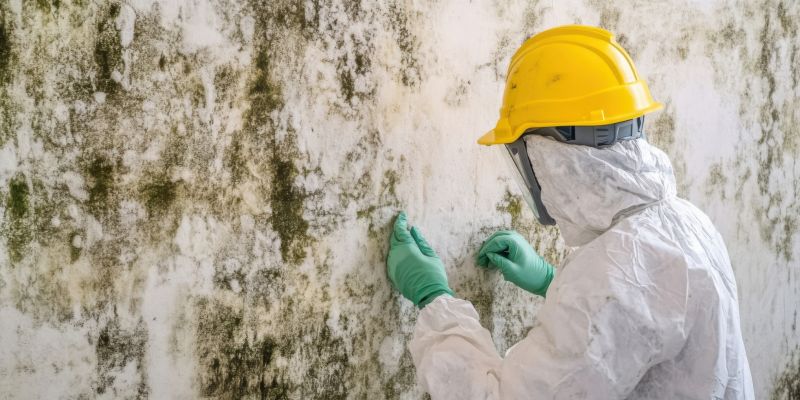
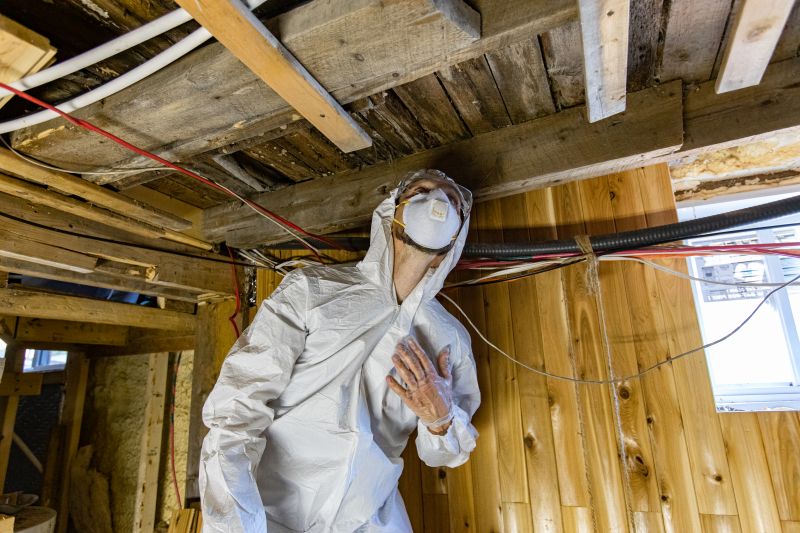
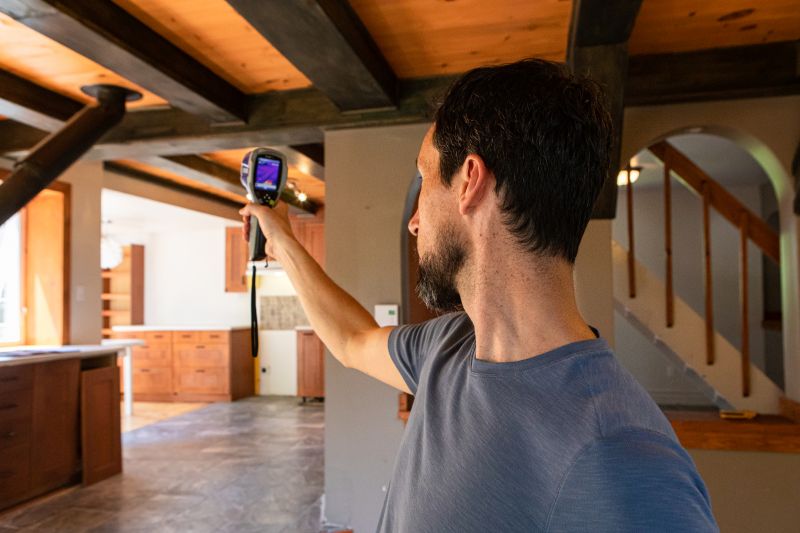
Mold inspection and testing services involve a thorough assessment of a property to identify the presence of mold growth and determine its extent. Certified technicians typically conduct visual inspections of areas prone to moisture buildup, such as bathrooms, basements, and around windows. They may also use specialized equipment to detect hidden mold behind walls, under flooring, or within HVAC systems. Testing involves collecting air and surface samples that are analyzed in laboratories to identify mold types and concentrations, providing a clear picture of whether mold is present and if it poses any health concerns.
These services are essential for resolving problems related to indoor mold growth, which can cause health issues like allergies, respiratory problems, and asthma flare-ups. Mold thrives in environments with excess moisture, often resulting from leaks, high humidity, or poor ventilation. Identifying mold early through inspection and testing can help prevent structural damage to the property, reduce unpleasant odors, and improve indoor air quality. Property owners who notice visible mold, persistent musty smells, or health symptoms linked to indoor air may find mold testing services particularly helpful in pinpointing the source and severity of the problem.
Mold inspection and testing are commonly used in residential properties, including single-family homes, apartments, and condos. They are also relevant for commercial buildings such as office spaces, retail stores, and rental properties. Any property that has experienced water damage, flooding, or ongoing moisture issues may benefit from these services. Homeowners planning renovations or purchasing a new property often opt for mold testing to ensure the environment is safe and free of hidden mold contamination. In all cases, partnering with experienced local service providers can help identify mold issues accurately and determine the appropriate next steps for remediation.
Understanding when to schedule mold inspection and testing can make a significant difference in maintaining a healthy living or working environment. Signs that may indicate the need for testing include visible mold growth, persistent musty odors, or unexplained health symptoms among occupants. Additionally, if a property has experienced water leaks, flooding, or high humidity levels, a professional assessment can reveal whether mold has begun to develop unseen behind walls or within ventilation systems. Contacting local contractors who specialize in mold inspection can provide peace of mind by helping identify potential problems early, ensuring the property remains safe and comfortable for everyone inside.
The overview below groups typical Mold Inspection And Testing projects into broad ranges so you can see how smaller, mid-sized, and larger jobs often compare in Houston, TX.
In many markets, a large share of routine jobs stays in the lower and middle ranges, while only a smaller percentage of projects moves into the highest bands when the work is more complex or site conditions are harder than average.
Basic Mold Inspection - Typically costs between $250 and $600 for standard residential inspections. Most routine jobs fall within this range, covering initial assessments and sampling. Larger or more complex inspections may cost more, depending on the property's size and mold concerns.
Laboratory Testing - Testing services generally range from $150 to $400 per sample analyzed. Many projects involve one or two samples, keeping costs in the middle of this range, while extensive testing of multiple areas can increase the total cost.
Remediation Estimates - Mold removal and cleanup services can vary widely, often between $1,000 and $3,500 for typical residential jobs. Larger or more severe infestations may push costs above this range, especially if structural repairs are needed.
Full Mold Remediation - Complete remediation projects usually cost from $2,000 to $6,000 or more, depending on the extent of contamination. Many jobs fall into the lower to mid-range, with larger projects requiring more extensive work and higher costs.
Actual totals will depend on details like access to the work area, the scope of the project, and the materials selected, so use these as general starting points rather than exact figures.
Indoor Air Quality Testing - local contractors perform air sampling and analysis to identify mold spores and other airborne contaminants inside homes and buildings.
Home Inspection Services - inspectors assess properties for signs of water damage and mold growth, helping homeowners identify potential issues early.
Water Damage Restoration - service providers handle water intrusion events, which often require mold assessment and removal as part of the drying process.
HVAC System Cleaning - professionals clean and maintain heating, ventilation, and air conditioning systems to prevent mold buildup and improve air quality.
Asbestos and Hazardous Material Testing - similar sampling techniques are used to detect hazardous materials that may coexist with mold in older buildings.
Structural Drying Services - experts focus on drying and restoring moisture-damaged areas, reducing mold growth risks in affected structures.
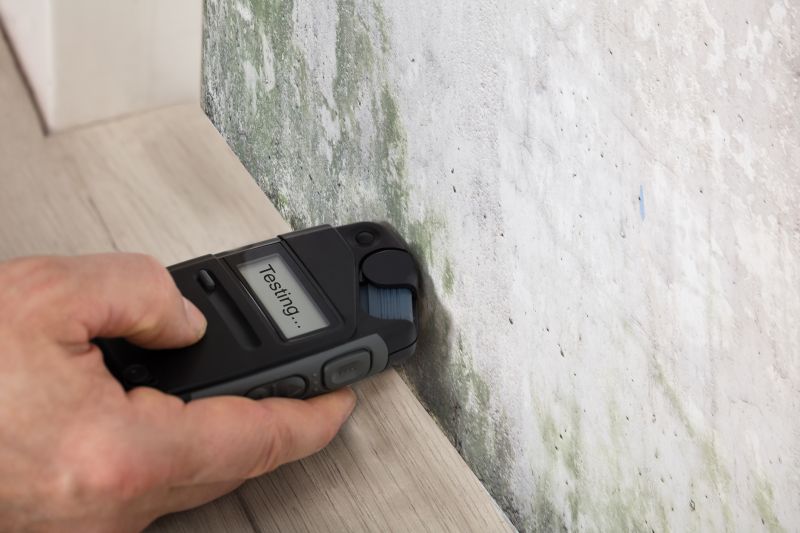
When comparing service providers for mold inspection and testing, it’s important to consider their experience with similar projects. Homeowners should look for local contractors who have a track record of handling mold-related assessments in properties like theirs. An experienced provider will understand common sources of mold, appropriate testing methods, and potential challenges specific to the area, such as humidity levels or building types. This familiarity can help ensure the inspection is thorough and the findings are accurate, providing peace of mind that the situation is being properly evaluated.
Clear, written expectations are crucial when selecting a mold inspection and testing professional. Homeowners should seek out providers who can clearly outline what the inspection will involve, what types of testing might be performed, and how the results will be delivered. Having this information in writing helps prevent misunderstandings and ensures everyone is aligned on the scope of work. It’s also beneficial to discuss any concerns or questions upfront, so the service provider can tailor their approach accordingly and provide a transparent process.
Reputable references and good communication are key indicators of a trustworthy service provider. Homeowners are encouraged to ask for references from previous clients or check reviews to gauge the quality of the contractor’s work. Additionally, a contractor’s responsiveness and clarity in communication can reflect their professionalism and commitment to customer service. Reliable service providers will be approachable, willing to answer questions, and capable of explaining their findings in understandable terms. It’s important to remember that this site helps connect homeowners with local options, but the actual inspection and testing work are performed by qualified local contractors who meet these standards.
Property owners in Houston, TX use Mold Inspection And Testing services for practical projects around their homes and businesses. This guide focuses on everyday jobs and straightforward project options.
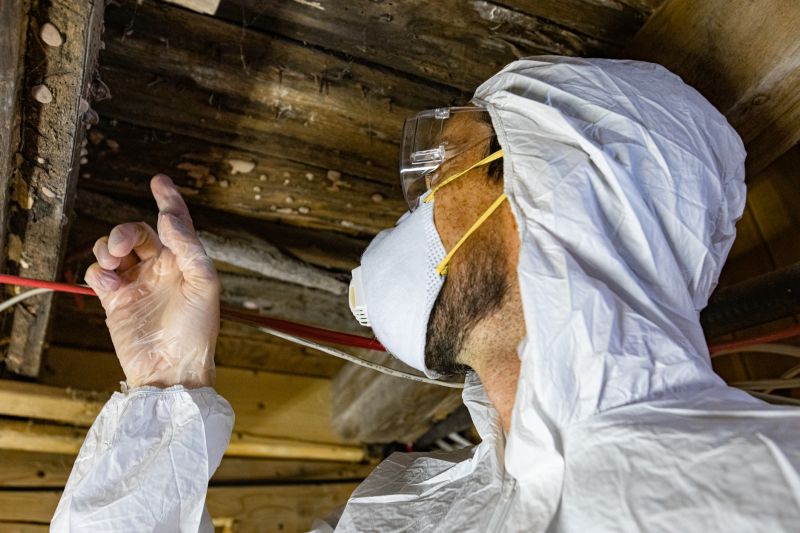
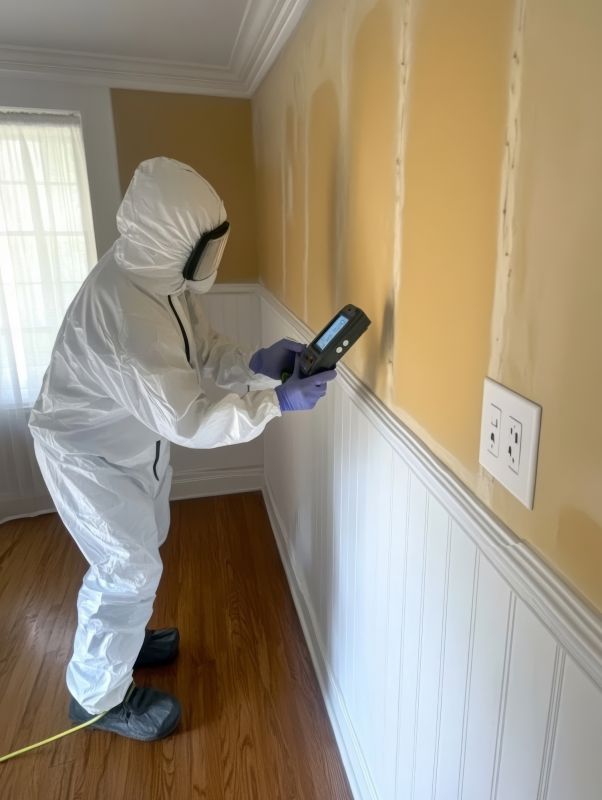
Property owners in Houston, TX might seek mold inspection and testing services when they notice a persistent musty odor, visible mold growth, or unexplained allergy symptoms in their homes or commercial buildings. These situations often arise after water leaks, flooding, or high humidity levels common in the area, prompting residents to ensure their indoor air quality is safe. Local contractors specializing in mold testing can help identify hidden mold issues that may not be immediately visible, providing peace of mind and guidance on necessary steps to address any concerns.
Additionally, property owners planning renovations or purchasing new homes may want to have mold inspections performed as part of their due diligence. In Houston’s humid climate, mold can develop behind walls, under floors, or in less accessible areas, making testing an important part of property maintenance. Experienced service providers can assess the extent of mold presence and recommend appropriate remediation options, helping homeowners and buyers safeguard their investments and maintain a healthy living environment.
What is involved in a mold inspection? A mold inspection typically includes a visual assessment of the property and may involve testing to identify mold presence and types.
Why is testing important after a mold inspection? Testing helps determine the extent of mold contamination and identifies specific mold strains, guiding effective removal strategies.
How do local contractors perform mold testing? Local service providers use specialized equipment to collect air and surface samples, which are then analyzed to detect mold presence.
Can mold testing identify hidden mold problems? Yes, testing can reveal mold growth behind walls, under flooring, or in other hard-to-see areas that visual inspections might miss.
What should I look for in a mold inspection service? Look for experienced local contractors who utilize proper testing methods and provide comprehensive assessment reports.
Identify hidden mold issues - Mold inspection and testing can reveal unseen mold growth inside walls or behind furniture, helping property owners address problems before they worsen.
Ensure indoor air quality - Testing services assist in assessing airborne mold levels, supporting homeowners in maintaining a healthy living environment.
Verify remediation effectiveness - After mold removal, testing can confirm that the affected areas are clean and safe for occupancy.
Assess moisture problems - Mold testing helps identify underlying moisture sources that contribute to mold growth, guiding necessary repairs or improvements.

If you are thinking about Mold Inspection And Testing for a property in Houston, TX, this guide is meant to help you understand the work, the typical project types, and how different options might fit your plans.
When you are ready, you can use the quote form on this page to share a few details about your project. From there, local pros can review the basics and respond with options that match what you have in mind.
